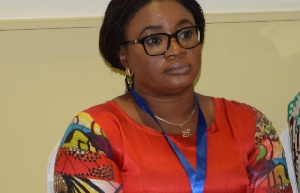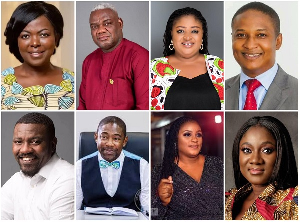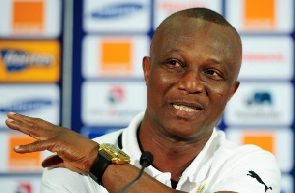We shall deal with this issue in due course, but for now suffice it to lay it out bluntly that contrary to what some hirelings and paid shills of the ruling National Democratic Congress (NDC) would have the rest of the country believe, the Supreme Court of Ghana is the highest governance institution in all the land.
It has absolutely no co-equal in the so-called Independent Electoral Commission (EC); although the latter institution belongs to the executive branch of government.
The difference here is this: Whatever interpretation the Supreme Court gives the Constitution and the laws of the land is what comes to legitimately govern the moral and professional conduct of each and every citizen of the country; including the Presidency, the Legislature and, you guessed right, the members of the judiciary as a whole, including, of course, the Supreme Court.
Consequently, the very curious notion that the EC reserves the right to ride roughshod over any and/or all interpretations of the law pertaining to its functions that are handed down by Apex Court reeks of nothing short of the inexcusably crime and treason.
This is also why Ghanaians ought to have been worried during the proceedings of the 2012 presidential-election petition when the presiding judge, Justice William Atuguba, scandalously declared that “elections are won at the polling station [or in the polling booth] and not in the courtroom.”
Indeed, if the country’s leading legal lights were up to snuff, as it were, in their appreciation of the dire implications of such a civically reckless statement, they would have promptly called for the immediate resignation of Justice Atuguba, as well as that of any of his associates on the Supreme Bench who shared such an outlandish view.
By the statement widely attributed to him, what Justice Atuguba, perhaps inadvertently, meant was that it was time aggrieved parties to the 2012 presidential-election petition took the law into their own hands, as the Apex Court had, in his opinion, practically outlived its usefulness in Ghanaian society.
And it is also for the foregoing reason why everything ought to be done to guarantee the satisfaction of all the stakeholders involved in the lead-up to Election 2016.
Nearly four years later, and on the verge of another potentially controversial election, it is imperative for either Justice Atuguba or Chief Justice Georgina T. Wood to come clean and kosher by publicly addressing the Atuguba contretemps.
It is also significant and interesting to observe the fact that the very people who are now scoffing at the very thought of the Supreme Court’s being mandated to order the so-called Independent Electoral Commission to clean up the voters’ register, are the same people who thunderously and deafeningly celebrated the Supreme Court’s decision in the 2012 presidential-election petition.
Maybe these pathological cynics ought to be told in plain language that they cannot eat their proverbial cake, or ofam, and have it too.
At any rate, the original intent or objective of this column was to alert the public of the need not to be unduly distracted by news that an excess of GHc 1.5 million earmarked for the EC’s work in the Western Region in 2012 cannot be accounted to the Parliamentary Public Accounts Committee (See “PAC Turns Heat on EC Over Alleged Misuse of GH? 1.5 M” Citifmonline.com / Ghanaweb.com 6/22/16).
Now, inasmuch as this ought to be of some concern to the Ghanaian taxpayer, nevertheless, it cannot be gainsaid that a country that can afford to play an interminable game of judicial dalliance with Mr. Alfred Agbesi Woyome can well afford to at least temporarily sidestep this relatively minor distraction, while it intently focused its attention on how not to end up back in the inner chambers of an Apex Court whose membership has publicly and categorically let it be known that it is avidly interested in resolving all grievances brought before it, except those that ought to have been conclusively resolved in the polling booth.
Opinions of Tuesday, 19 July 2016
Columnist: Okoampa-Ahoofe, Kwame



















